Empathy
Empathy is the ability to recognize and understand feelings and emotions by others. It’s about feeling into the other without feeling the same feeling. This is often confused with sympathy that is the ability to share a feeling with another: In sympathy we feel the same feeling – together.
In empathy we feel into the other, in sympathy we feel with the other.
We are all born with the ability to be empathic. But like any other ability it has to be practiced through life. Especially we have to be encouraged to practice this as child. Unfortunately we must face that (too) many humans grow up with only (too) little practice.
We can also say that empathy is about “having a sense” of another like a child: a spontaneous joy being in hearty contact human-to-human. It’s not about being a child again, it’s about being natural and responsible as adults to make all of us manage best possible in life with it’s pains and pleasures.
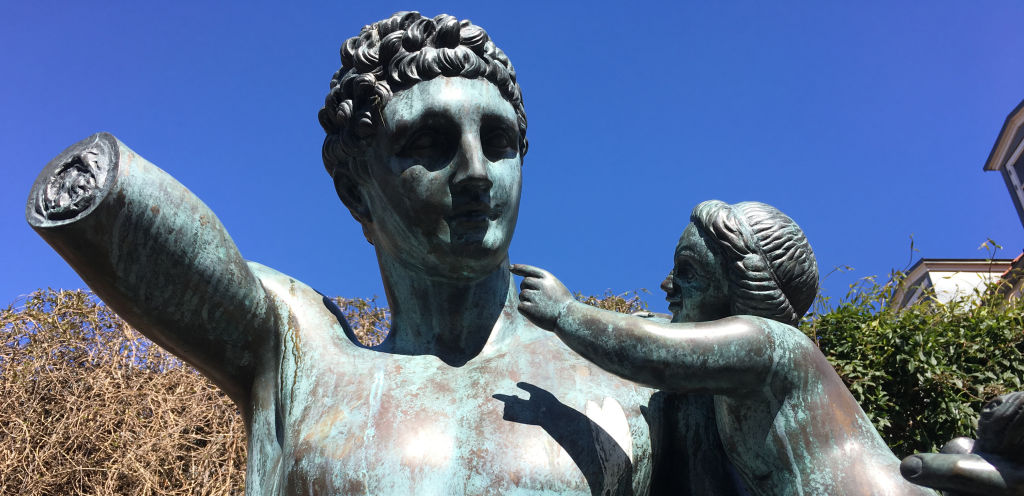
When we are empathic we experience the feeling (for instance a feeling of grief, anger or joy) as belonging to something or someone outside our own self, – even the feeling we sense by the other is still our own.
It’s through empathy that we can get access to another human´s feelings, which is not the same as feeling being the other one or be an offer for the feeling. We are able to registrar the other one’s feeling, then take it in and express it a distinct way. Still the other one feel the feeling another way, he or she can even be unconscious about the feeling.
Having developed empathic behaviour we help both others and our selves to possess more self-sufficiency, more serenity. With empathic behaviour we can help each other through emotional stressed situations, for instance when we get scared of suffering from a dangerous decease, scared of losing a job, feel grief after a loss, are nervous before an exam etc.
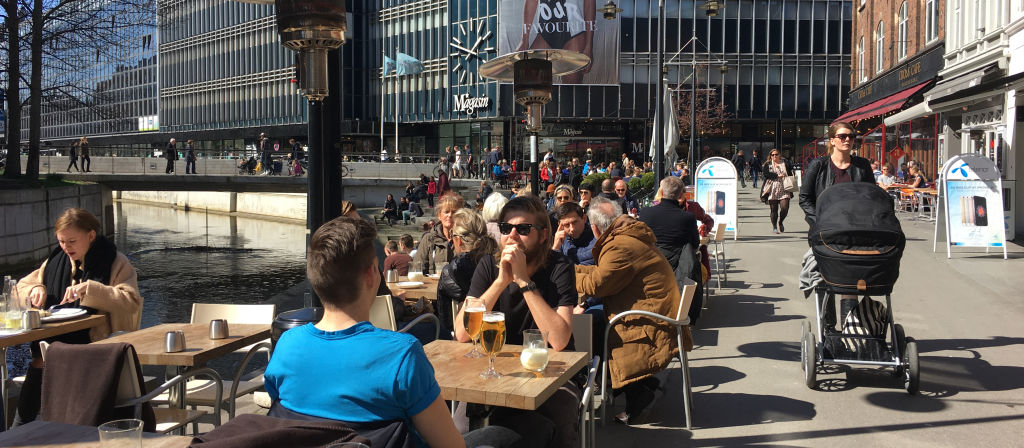
The ability to see things from the perspective of another is a demanding and partly controlled process that one can activate consciously – by will. We can turn it on and off.
Persons who are able to imagine one self in another one’s place, are producing a much stronger response both physiologically and at a mental level, than people who only observe the same acts and expressions of feelings.
It seems easier for us to imagine another one’s situation, when we try to imagine how we would feel, if we our selves were in that situation. An empathic ability is therefore based on one’s own self-perspective and self-consciousness.
The more consciousness we have about our own feelings and reactions, the greater ability we also have to feel into others.
It’s impossible not to close down our own perspective, when we try to sort out what kind of feelings are in the other. This explains why we have to use a lot of strength and practice to represent the view and feelings of another – the possibility of a selfish distortion is always present.
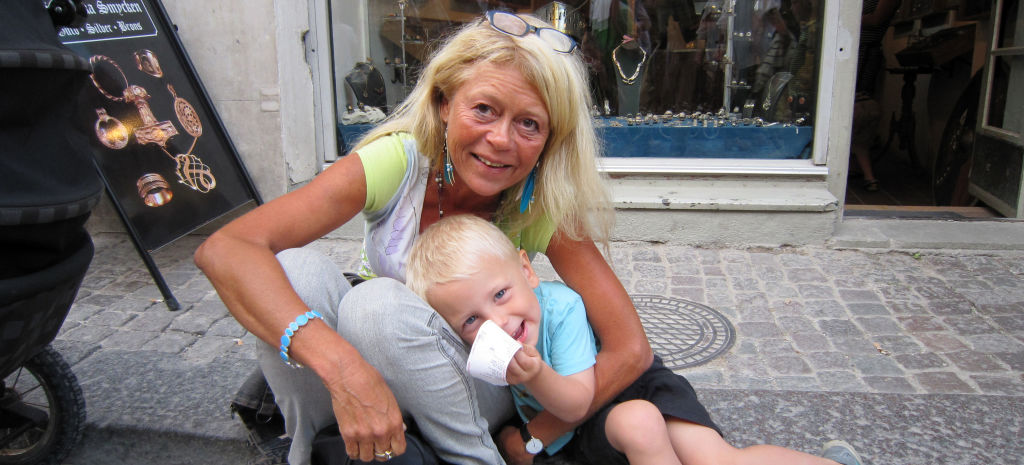
At an unconscious level we use our own physical and emotional processes as a measure of understanding others. We can attach our own to others and these might be wrong, if we are not conscious able to distinguish.
The less we know about our own emotional life, the less empathic we can be towards others.
We are able to be empathic to others, because they are humans – like we are. What we recognize is something look-alike what we know from our own self.
We are also able to learn from other people’s experiences, even when we did not have the experience our selves. We learn about our selves watching the sense of our selves from another one’s perspective.
As example a nurse can through empathy understand a patient having fear before a risky operation – and the nurse is able give strength, hope and tell about facts in a compassionate way that will help the patient to have trust and to calm down.

To be skilled in empathic behaviour we must practice the ability to love:
1. Meaning: to care for others, to be compassionate and warm.
2. We must practice our consciousness about our selves, for instance be able to distinguish between what we think and what we feel – and have knowledge about from where these thoughts and feelings were born. We must work with our mind and senses.
A specific behaviour or feeling can for instance be something we have acted from since childhood.
3. We must practice the ability to be happy for life. Be able to be present in the exact moment, enjoy sun and rain, friends, pets, food etc.
4. We must practice body-awareness that is not necessary something we find by doing sports. It’s the sense of our body each moment of day.
5. We must practice the awareness of our breath. We are breathing all the time – and mostly we are unconscious about it. A little practice every day sensing, noticing and feeling our breath, helps to develop the ability to empathize.
6. Finally we must practice our ability to be creative in thinking and doing. Creativity will develop a more flexible mind and a greater amount of emotions.
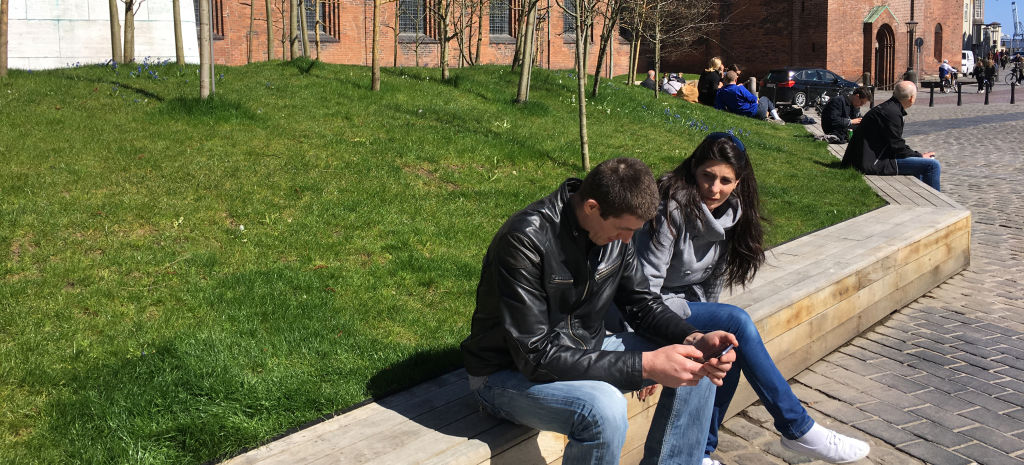
Empathic skills make us less scared of life. Less scared of others. Empathic skills make us happier and able to love deeper. Empathic skills make us able to create stronger bonds, interconnectedness and more lovable situations and relationships – short term and sustainable. To empathize is one way of practicing to love.
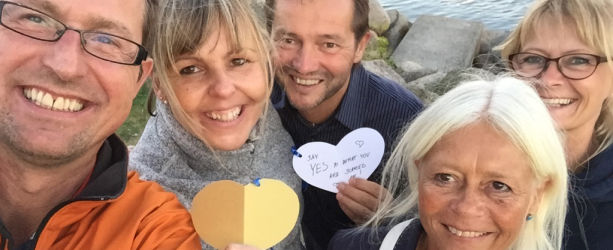
 Read more...
Read more...